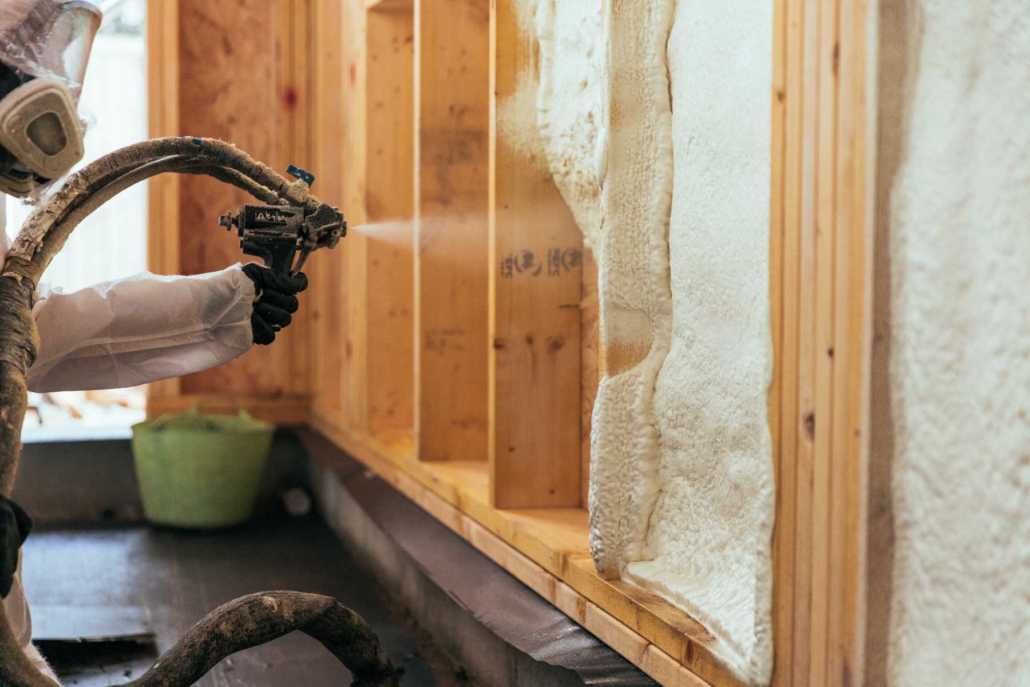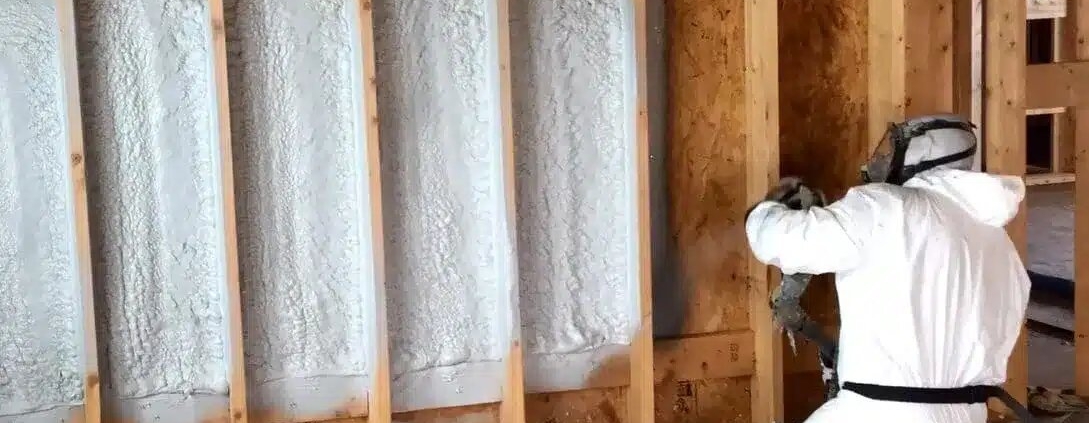Why Energy-Efficient Homes Aren’t Complete Without Closed-Cell Spray Foam
Energy efficiency has become a top priority for both homeowners and commercial property owners. Upgrades like new windows, high-efficiency HVAC systems, and LED lighting are common. But without proper insulation, many of these improvements fail to deliver their full potential. Closed-cell spray foam insulation is often the missing piece that transforms a home or building from “energy-efficient” on paper into truly high-performing in practice.
Why Insulation Defines True Energy Efficiency
Insulation plays a larger role in energy performance than many realize. Even the best HVAC system can’t operate efficiently if conditioned air escapes through gaps in walls, roofs, or floors. Closed-cell spray foam provides more than just thermal resistance—it delivers a complete barrier that stops air and moisture movement, two of the leading causes of energy waste.
Thermal Performance and Air Sealing
Closed-cell spray foam has a high R-value per inch compared to fiberglass or cellulose. This means it provides superior resistance to heat flow with less material. But beyond R-value, its ability to seal cracks and gaps makes it far more effective at preventing energy loss.
Moisture Control and Building Longevity
By acting as a vapor barrier, closed-cell spray foam reduces the risk of mold, mildew, and wood rot. This moisture resistance helps preserve the integrity of a home’s structure, something traditional insulation materials cannot guarantee.

How Closed-Cell Spray Foam Differs from Other Insulation
Many homeowners and building owners compare insulation types before making decisions. Closed-cell spray foam stands out because it provides benefits beyond just temperature control.
Fiberglass vs Closed-Cell Spray Foam
Fiberglass is common and affordable, but it allows air movement through gaps. Closed-cell spray foam creates an airtight seal, reducing drafts and lowering energy bills.
Cellulose vs Closed-Cell Spray Foam
Cellulose offers recycled content and environmental appeal but lacks moisture resistance. Closed-cell spray foam prevents water absorption, reducing long-term risks.
Spray Foam Types: Open-Cell vs Closed-Cell
Open-cell spray foam is softer and less dense, suitable for interior soundproofing. Closed-cell spray foam is rigid, moisture-resistant, and ideal for energy efficiency in both residential and commercial settings.
| Insulation Type | R-Value (per inch) | Air Barrier | Moisture Resistance | Structural Strength |
|---|---|---|---|---|
| Fiberglass | 2.2–3.8 | No | Low | None |
| Cellulose | 3.2–3.8 | No | Low | None |
| Open-Cell Foam | 3.5–3.8 | Yes | Low | Low |
| Closed-Cell Foam | 6.0–7.0 | Yes | High | High |
Benefits for Residential Homes
Closed-cell spray foam provides long-lasting advantages that extend beyond energy savings for homeowners.
Consistent Indoor Comfort
Homes insulated with closed-cell spray foam maintain more stable temperatures. The airtight seal prevents cold drafts in winter and hot air infiltration in summer.
Lower Energy Bills
By minimizing air leakage and increasing efficiency, homeowners often see noticeable reductions in monthly heating and cooling costs.
Added Property Value
Energy-efficient homes are in high demand. Closed-cell spray foam becomes a selling point that can increase resale appeal and value.

Benefits for Commercial Properties
For commercial buildings, the stakes are higher because energy use and operating costs are significant. Closed-cell spray foam offers reliable solutions for long-term performance.
Energy Efficiency at Scale
Large commercial buildings benefit from the insulation’s high R-value and air barrier properties, which reduce heating and cooling loads across expansive spaces.
Strength and Durability
Closed-cell spray foam adds rigidity to walls and roofs, improving structural stability. This is valuable in regions prone to storms or heavy snow loads.
Moisture Protection
Flat roofs and commercial walls often face moisture challenges. Closed-cell spray foam acts as both insulation and barrier, reducing risks of water infiltration and interior damage.
Common Question: Why Isn’t Traditional Insulation Enough?
Traditional insulation materials like fiberglass and cellulose may provide initial thermal resistance, but they don’t seal air leaks or protect against moisture. Over time, their effectiveness declines due to settling, gaps, and water damage. Closed-cell spray foam solves these issues by combining insulation, air sealing, and moisture control into a single application.
Conclusion
Closed-cell spray foam is more than just insulation—it’s the final step in making an energy-efficient home or building complete. By providing high R-value, air sealing, moisture protection, and structural strength, it addresses the weaknesses that traditional insulation leaves behind. For homeowners, the benefits include stable indoor comfort, lower energy costs, and increased property value. For commercial property owners, the added durability and long-term performance provide significant savings and reliability. Any property that claims to be energy-efficient is missing a critical element if closed-cell spray foam is not part of the system.
Learn More about at: https://www.lamotheinsulation.com/?utm_source=backlink
FAQs
Does closed-cell spray foam improve indoor air quality?
Yes. By sealing gaps, it reduces the infiltration of outdoor pollutants, allergens, and moisture that contribute to mold growth.
Can closed-cell spray foam strengthen a building?
Yes. Its dense, rigid structure bonds to surfaces, adding stability and increasing the overall durability of walls and roofs.
Is closed-cell spray foam suitable for both new builds and retrofits?
Yes. It can be applied during construction or added to existing homes and commercial properties, making it versatile for different projects.
How long does closed-cell spray foam last?
It typically lasts the lifetime of the building without losing its effectiveness, unlike traditional insulation that can settle or degrade.
Does closed-cell spray foam help in extreme climates?
Yes. Its high R-value and moisture resistance make it effective in both hot, humid regions and cold, snowy environments.
Author: With over two decades of hands-on experience, Robert Lamothe, owner and lead installer of Lamothe Insulation, brings unparalleled expertise in spray foam insulation, carpentry, and building science. Since 2002, he has earned a reputation for precision, quality craftsmanship, and delivering energy-efficient solutions that stand the test of time. Lamothe Insulation is a family-owned and family-operated business, and Robert also owns the Goddard School of Auburn, an early childhood education school.
Reviewer: Ethan Taylor has 8 years of experience in spray foam insulation. He reviewed this content and suggested ways to simplify business outreach while keeping trust and professionalism intact.



Leave a Reply
Want to join the discussion?Feel free to contribute!